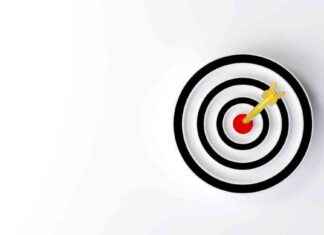Joe Biden concluded a whirlwind visit to Hanoi on Monday, which he described as “historic”, between economic discussions, warning to China, and tribute to an American hero of the Vietnam War.
The president flew to a military base in Alaska, to mark on American soil the memory of the jihadist attacks of September 11, 2001.
A veritable world tour in five days for the 80-year-old Democrat, who intended to demonstrate American power on China’s doorstep.
He spent some 24 hours in the Vietnamese capital, and announced, among other things, a juicy order for the American giant Boeing, worth 7.8 billion dollars (7.28 billion euros).
Joe Biden implicitly warned Beijing against “threats or use of force” in the South China Sea, in a joint statement signed with the leader of the Vietnamese Communist Party Nguyen Phu Trong.
The Democratic president met the strong man of the regime on Sunday.
He was received by President Vo Van Thuong on Monday and participated, with Prime Minister Pham Minh Chinh, in a meeting of business leaders from the two countries.
Vietnam and the United States have signed a reinforced strategic partnership agreement, with strong economic and technological content.
The White House, in a statement released Sunday, touted “the Southeast Asian country’s ability to play a critical role in building robust semiconductor supply chains.” In short: less dependent on China.
The agreement should guarantee the United States that Joe Biden wants to reindustrialize supplies of essential electronic components at high speed.
Vietnam can hope for support from the Americans to develop its production capacities.
Joe Biden repeated on Sunday, during a press conference, that he did not want to “isolate” nor “contain” China, and even less launch a “cold war”.
But he was happy to highlight the social and economic “difficulties” of the Chinese giant.
The American president concluded his visit to Hanoi with a discussion of the Vietnam War (1955-1975).
Joe Biden, who will seek re-election in 2024, paid his respects at the place, marked with a stele, where John McCain’s plane was shot down on October 26, 1967.
Seriously injured, the fighter pilot was taken prisoner, incarcerated for more than five years and tortured.
The war hero then became a figure of the Republican Party, senator and unsuccessful presidential candidate against Barack Obama. John McCain died in 2018 from brain cancer.
“I miss him, he was a good friend,” said the American president, a centrist very attached to consensus and dialogue.
Such a friendship, between a leading Democrat and an influential Republican, is difficult to imagine in today’s America, as the presidency of Donald Trump has widened partisan divisions.
John McCain worked to heal the wounds between Vietnam and the United States, as did John Kerry, also a veteran.
Today the main American negotiator on climate issues, he was present in the White House delegation in Hanoi.
Joe Biden, for his part, remained a stranger to this conflict so significant for his generation.
He did not fight, exempted for academic and health issues. Nor did he demonstrate against the war.
His choice to commemorate the September 11, 2001 attacks in Alaska is unusual, if not completely unprecedented. Most often, the “commander in chief” traveled that day to New York or one of the other locations that had been attacked.
11/09/2023 20:22:25 – Hanoi (AFP) – © 2023 AFP






